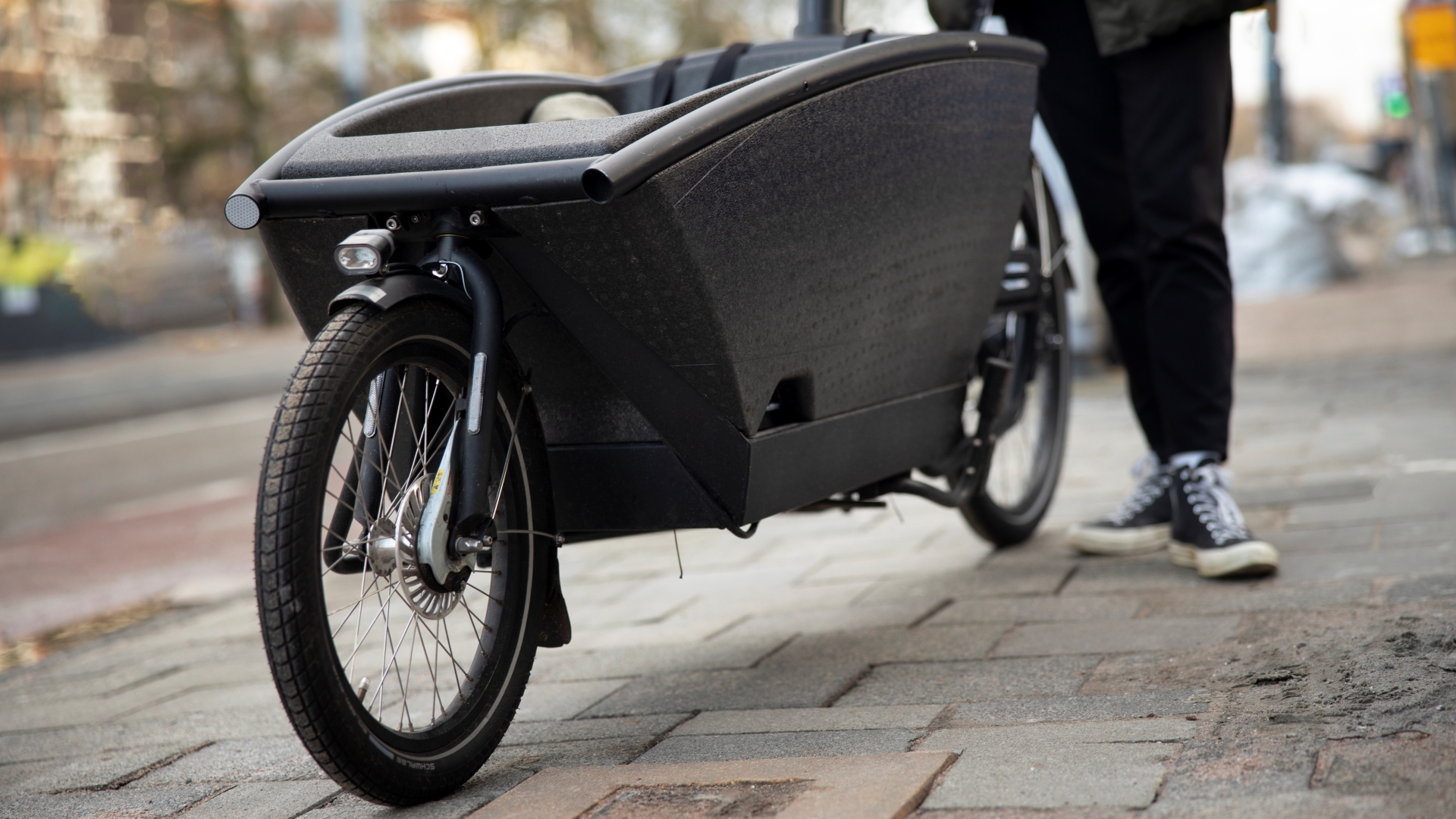
Substantial emissions and cash savings to be gained from last-mile mixed electric fleets
112 days ago
3 minutes
A new study by EIT InnoEnergy reveals that, compared to e-vans alone, e-cargo bikes reduce the total cost per parcel regardless of the city layout and fleet mix.
Source: Tech.eu
A recent study conducted by EIT InnoEnergy, a body of the European Union, has revealed the potential benefits of employing mixed electric fleets comprising both e-cargo bikes and e-vans for urban logistics operations. The findings suggest that such a mixed fleet approach not only offers significant cost savings for logistics providers compared to relying solely on e-vans but also contributes to enhancing the overall quality of life in urban areas.
The research, which examines the economic and environmental implications of utilizing mixed electric fleets, indicates that for a major logistics company handling 2 billion parcels annually, transitioning to a fleet consisting of 80 percent e-cargo bikes and 20 percent e-vans could result in substantial annual cost savings of approximately €554 million by the year 2030. Moreover, such a shift could lead to a reduction in last-mile logistics emissions by as much as 80 percent.
Jennifer Dungs, the Global Head of Mobility at EIT InnoEnergy, underscored the growing pressures faced by logistics operators, including escalating parcel volumes, bans on combustion-engine vehicles in city centers, parking constraints, and the imperative to minimize costs in a highly competitive industry. Dungs emphasized, “This study demonstrates that e-cargo bikes are not only a sustainable solution to these challenges but also offer cost competitiveness and viability for major logistics players, both presently and in the foreseeable future.”
The study’s findings highlight that e-cargo bikes present a cost-effective alternative to e-vans across various fleet compositions and urban layouts. In the baseline case examined, the total cost per parcel in 2023 using e-cargo bikes was found to be €0.05 lower compared to a fleet solely comprising e-vans. By 2030, this difference is projected to increase to €0.20 per parcel.
In an optimized scenario, where an 80 percent e-cargo bike and 20 percent e-van fleet operates within a medium-sized city, the savings relative to a 100 percent e-van fleet are even more substantial. In 2023, this optimized approach translates to savings of €0.08 per parcel, totaling approximately €156 million annually for a large logistics provider. By 2030, the cost difference per parcel is anticipated to reach €0.28, resulting in total savings of approximately €554 million.
Furthermore, the integration of e-cargo bikes into urban logistics systems could yield significant environmental benefits, including an up to 80 percent reduction in emissions from last-mile logistics across Europe’s 100 largest cities. Additionally, the adoption of e-cargo bikes could alleviate traffic congestion and competition for space by potentially replacing up to 120,000 vans.

LEVA EU
Campaign success
Lorem ipsum dolor sit amet, consectetur adipisicing elit, sed do eiusmod tempor incididunt ut labore et dolore magna aliqua.
Member profile
Lorem ipsum dolor sit amet, consectetur adipisicing elit, sed do eiusmod tempor incididunt ut labore et dolore magna aliqua.